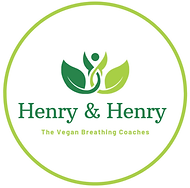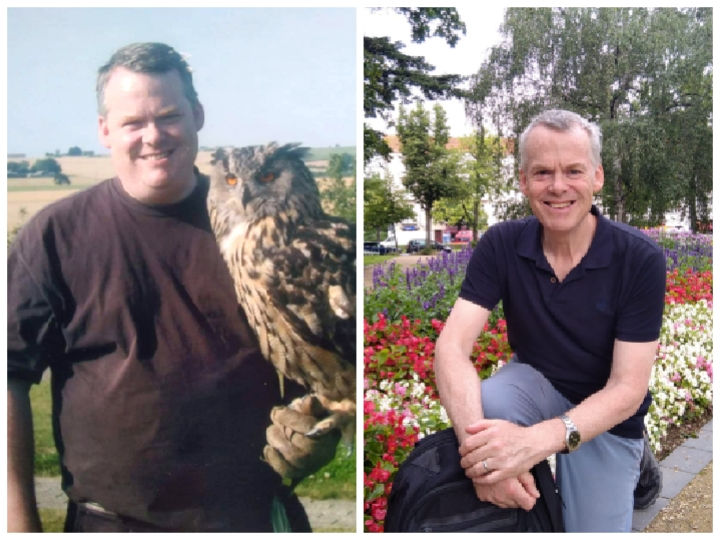Things I Wish I'd Known at 30
- Henry & Henry

- Jul 18, 2025
- 5 min read
As I don't have an encyclopaedic memory of being 30, the latter part of the title should more accurately read ‘in my 30s’. At this age, many people have already come to new realisations about life, both practically and otherwise. Not me. But my hitherto blissful ignorance about many things was starting to be eroded as life became a little more worrisome and the health and fitness I'd experienced in my 20s a little less robust.
Diet and Disease
Disease development typically takes time, much more time than we're aware of since we generally have the mindset of the diagnosis being the point at which we ‘have’ something. I ‘had’ endometriosis in my late 30s and even then, I didn't really contemplate the possibility that it had been there long before the symptoms drove me to get a scan. Major surgery and unpleasant synthetic hormone treatment ensued but only a couple of years later the symptoms recurred and I was looking at more of the same albeit keyhole surgery this time. Something prompted me to look for another response and I found it. A dietary change meant I had no further need of any medical intervention for endometriosis, ever!
Health and Medicine
That mind-blowing revelation about food gave rise to another as I gradually answered my own indignant question: “Why did ‘they’ never tell me about food?!” ‘They’ were the many medics and health professionals I'd encountered in the course of this whole episode. It transpired that ‘they’ didn't know. Medical training even now puts little to no emphasis on food, favouring instead a pharmaceutical or surgical response to symptoms, a style of healthcare that first requires you to be sick and even then a search for the root cause isn't typically prioritised. This is something I wish I'd known. I'd hitherto put too much trust in a system whose honourable foundations had become hopelessly mired in the vested interests of the corporations that have much to gain from a sick population.
Calcium Concerns
It would also have been helpful to know that powerful lobbying can shape public convictions about right and wrong. This requires wholesale acceptance of a version of apparent ‘truth’. My dietary change had led to me giving up dairy overnight. Although it paid dividends in the way I hoped it would, as well as dramatically reducing my hay-fever, I was perturbed about my bones! Would I get osteoporosis because I was no longer consuming dairy? Was I being irresponsible? Other people's comments compounded my angst. Again, my own research (all pre-internet) calmed my fears when I learned that around 70% of the world's population cannot tolerate the milk sugar, lactose and that the countries with the highest consumption of dairy are the countries with the highest rates of osteoporosis. Yes, calcium is of course important as are lots of other nutrients. But the bones require more than just calcium and that mineral is available in a whole range of plant foods which offer other abundant bone-supporting nutrients such as vitamin K, vitamin C, magnesium. And vitamin D?
Vitamin D Diversion
We now know that vitamin D is imperative for good bone health however it's insufficient in pretty much any diet anywhere in the world apart, perhaps, in that of the Inuit. And we're spending less time in the sun. Our bodies need vitamin D. I discovered only relatively recently that I didn't have enough of it, which becomes less surprising when you learn that almost every cell in the human body has a receptor and thus a requirement for this….hormone-like substance! It was misnamed as a vitamin. We need to reconsider much about this nutrient and update the historical conclusions which were based on incomplete knowledge. And of course, once again there are vested interests. It can't be patented. There's not much profit in vitamin D. Why bother testing for it and emphasising its importance? How long had I been deficient? How has it affected me? That journey of discovery is in its infancy. How exciting!
Hormones and Breathing
I also didn't know in my 30s that I might have been able to ease my PMS symptoms simply by altering my breathing. Once again medical training falls short. Information in the scientific literature from the early part of the last century still hasn't made it into today's medicine. I’ve written about this before so I won't expand here.
Anxiety Answers
But what about that persistent low-level anxiety? It certainly featured in my 30s and onwards however I assumed that was just me, that's how I was, until I successfully retrained my breathing and realised it was no longer there. I'd almost certainly been breathing a little bit too fast without ever knowing it. What would I have got from a doctor for anxiety had I gone to see one? I'm guessing there'd have been no reference to breathing on the prescription sheet … Breathing Re-education is typically a one-off experience involving no medication, and possibly even relieving a patient of their need for certain drugs. No big shareholder profits. No apparent motivation to include it in any medical school syllabus, so many people will continue to be medicated when in fact, unnatural breathing needs to be addressed.
When Wishes Come True
But it's not the case that my 30s were exclusively all about reasons to become cynical. I must also allude to something altogether different. It was in that decade that I discovered something that to this day I struggle to name. Some call it the law of attraction, others refer to manifestation, or the power of belief. There's also the concept of tapping into one's intuition. Whilst none of the above fully work for me, they're all relevant in what they attempt to convey and I haven't come up with anything better, or indeed anything else, so I'm in no position to criticise. It was shortly after I'd been made redundant that I had my first memorable experience (it had happened before, I just hadn't noticed). My income quite simply didn't match my outgoings which were already modest by most standards. Cutting right back on pretty much everything and getting rid of my telephone (telephony was more expensive in those days) actually looked like a viable option! It didn't come to that. I started to look for other income streams and, just like chancing upon a book about healing endometriosis through nutrition when I most needed it, I found them. Easily. This was accompanied by the fulfilment of a dream to teach Spanish. There’s nothing on paper to suggest that I should teach Spanish, especially not to A Level students, but for about a decade, I did just that, and I loved it. Another ‘wish’ got me to Cuba for two weeks, mostly paid for by some residual funding in the Modern Languages budget which was the only way it could happen for me at the time. How likely was that?!
This phenomenon has continued to accompany me throughout the subsequent decades and almost certainly has something to do with me now living in Berlin, married to Graham and feeling more at ease in my own skin than I ever have before. Yes, there are plenty of things I could have usefully known in my 30s, far more than I've referred to here, but everything I've learned and experienced has shaped me and led me to who I am now. And I'm grateful for all of it, the good, the not-so-good and even the pain. Why are we here if not to evolve?

~ Annette Henry



)_20230830_134131_0000.png)



Comments